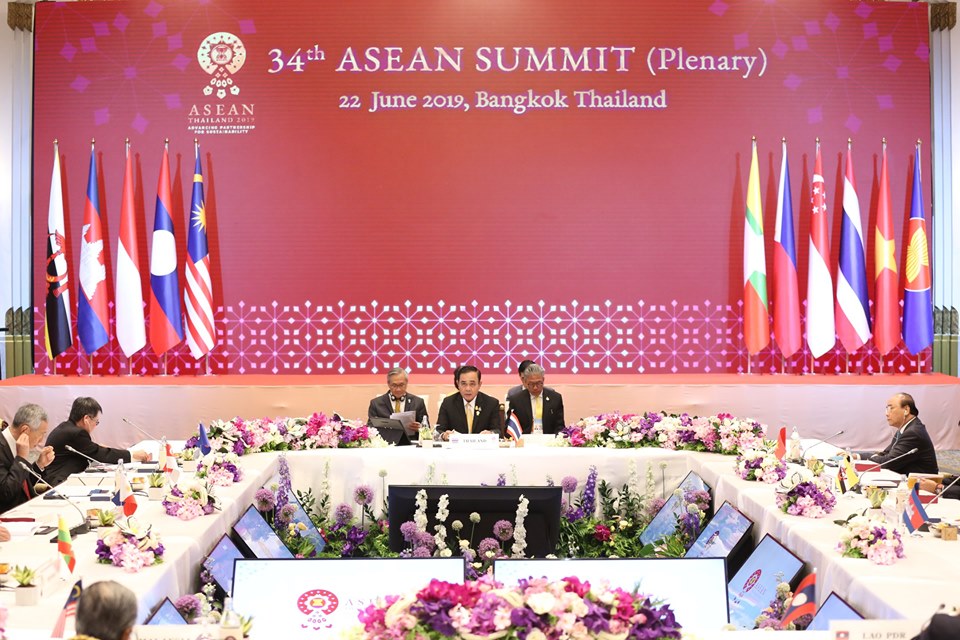Headline
ASEAN OK’s border cooperation vs terror, other crimes

FILE: General Prayut Chan-o-cha (center), Prime Minister of the Kingdom of Thailand, chaired the Plenary of the 34th ASEAN Summit held in Bangkok on Saturday (June 22, 2019) which was attended by other ASEAN leaders and the ASEAN Secretary-General. (Photo: ASEAN2019/Facebook)
BANGKOK – President Rodrigo Duterte and his counterparts in the Association of Southeast Asian Nations vowed to strengthen border cooperation to combat terrorism, counter the rise of radicalization and violent extremism and transnational crimes, including drug trafficking and human trafficking.
In combatting terrorism, which is a common problem by the Philippines, Thailand, Singapore, Indonesia and Malaysia, Duterte and the 9 other Asean leaders said they will continue to follow the 2017 Manila Declaration and the 2018 ASEAN Plan of Action.
The Manila Declaration aims to involve all sectors in preventing the process of radicalization that would give rise to violent extremism and terrorism.
In the Vision Statement on Partnership for Sustainability signed here on Saturday, the ASEAN leaders sais they will also continue to manage their borders “in accordance with domestic laws and policies to better safeguard the increasingly interconnected and integrated ASEAN Community.”
They also vowed to fasttrack negotiations on the ASEAN etradition treaty, which would enable member-countries to try terror and crime suspects in their own courts.
The ASEAN 10 leaders said they will also continue to enhance cooperation on cybersecurity for “an open, safe, secure and resilient cyberspace supporting the digital economy of the ASEAN region through a feasible coordination and discussion mechanism on Cybersecurity issues, promoting voluntary and non-binding cyber norms of responsible State behaviour in cyberspace and adopting cybersecurity Confidence Building Measures (CBMs) as per the ASEAN Leaders’ Statement on Cybersecurity Cooperation, as well as supporting the cybersecurity activities and training programmes of the ASEAN-Japan Cybersecurity Capacity Building Centre (AJCCBC) in Bangkok and the ASEAN-Singapore Cybersecurity Centre of Excellence (ASCCE) in Singapore which will complement existing ASEAN efforts in cybersecurity capacity-building.”





















